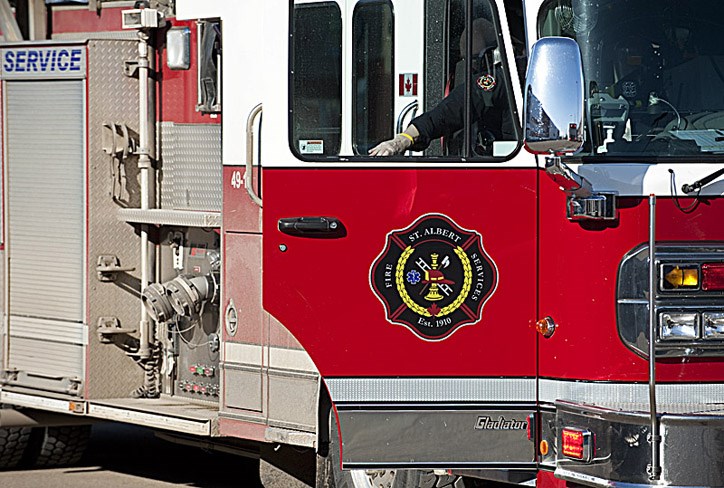The City of St. Albert is facing high costs associated with worker's compensation benefits, mainly from psychological injuries to the city's first responders.
During council's budget deliberation meetings on Nov. 29 and Dec. 1, the city's director of human resources, Ryan Stovall, told council that the situation is causing the city to pay high premiums to the Workers' Compensation Board (WCB), and lose much-needed rebates.
Right now the city is facing ongoing challenges with claims for staff, which are currently 47 per cent higher than the industry average.
In an email, Stovall told The Gazette that the city has seen costs for claims increase each year since 2019, which has resulted in the city paying a premium rate next year that is 23.5 per cent higher than the industry standard. The city's 2023 premium rate is $2.50 for every $100 of assessable earnings by employees, Stovall said, while the industry rate is $2.02.
The city pays the premium rate, which is 23.5 per cent higher for their insurance through WCB, while workers' compensation is paying the cost of the overall claims, which for St. Albert, is 47 per cent higher than the industry average.
"In addition to industry rates which are increasing, due to the extent of services the city provides we have claims experience that other industry members would not have," Stovall said. "The city employs firefighters, paramedics, and fire and police dispatchers, while other employers in our WCB industry may not.”
In a backgrounder prepared for council, Stovall said it could be years before the city's premium rate falls below the industry standard again as St. Albert experienced a sharp increase in complex mental health claims for first responders, and those claims could remain open for multiple years.
In the email, Stovall said workers' compensation claims for first responders represented 87 per cent of the total claims cost in 2021, and the year-to-date percentage for 2022 stood at 82 per cent.
“It is common to see a psychological injury claim stay active and incurring claim costs for multiple years due to lengthy and complex treatment requirements, and we have seen in several cases an employee is unable to successfully return to their pre-injury work," Stovall said.
"As psychological claims are so complex and lengthy in nature the claims costs grow very high," Stovall said. "This issue is not going away and the prevention and effective treatments for psychological illness (and) injury is still in its early stages."
"There is also nothing that stops repeat injury of psychological injuries."
Stovall told council during the Dec. 1 council meeting that, prior to 2019, the city was receiving two rebates from WCB; however, the city no longer qualifies for one of them.
The rebate the city still qualifies for is the Certificate of Recognition Rebate, which is five per cent of industry rate premium, Stovall explained in a backgrounder. The rebate St. Albert is no longer eligible for is a five to 15 per cent return for staying below the industry rate of costs for claims.
The rebate the city no longer receives used to be transferred to the city's safety reserve, according to Stovall's backgrounder. The safety reserve was then used to fund the city's Safety Enhancement Program (SEP), which "seeks to understand health and safety issues workers are noting, and identify long-lasting solutions," Stovall said.
Council unaware
As the city has missed out on three years of rebates, the safety reserve has been depleted, Stovall said, which is why a business case for $47,000 was included in the 2023 budget to fund the SEP program for 2023.
During the Dec. 1 meeting, council debated and eventually defeated a motion put forward by Coun. Shelley Biermanski that sought to remove the business case from the budget.
As well, identical motions put forward by Biermanski and Coun. Sheena Hughes seeking to prevent the conversion of a full-time abilities management coordinator temporary position to a permanent position next year, despite no additional costs, were withdrawn during the Dec. 1 meeting.
The abilities management coordinator, according to the business case, is responsible for "coordinating and expediting return to work strategies" for employees on leave from their position due to illness or injury.
"The longer an employee is off work due to an injury or illness, the higher the costs of insurance premiums and department overtime. Delays in the claims management process have directly impacted these increases, with WCB premiums more than doubling over the last (five) years," the business case says.
"I think any business case or any position or project that keeps our keeps our workforce safe, whether it's physically or mentally, is a priority for this council," Mayor Cathy Heron said in an interview, adding that prior to the deliberation meetings, council was not aware of the increased costs facing the city due to the rising WCB claims.
"I think it's really important for council to be aware," Heron said. "Our staff is our biggest resource."
In an interview, Coun. Mike Killick said converting the position to permanent is a key step the city needed to take to try and bring the WCB premium back down to the industry standard.
“It’s important that we handle those claims as quickly and efficiently as possible," Killick said. "WCB claims are part of running a significant employee operation, and it was important to make that position permanent.”
Similarly to Killick, Coun. Ken MacKay told The Gazette that he thought funding the SEP program and converting the position to permanent was "critical."
"It is going to take some time, but I truly believe that this will benefit both employees and the organization," MacKay said.
"My worry would be if we weren't monitoring this and we weren't trying to identify what the causes were and how we could better address them," he said, referencing strategies that the city's human resources department is developing to address the situation, such as a psychological safety program.



